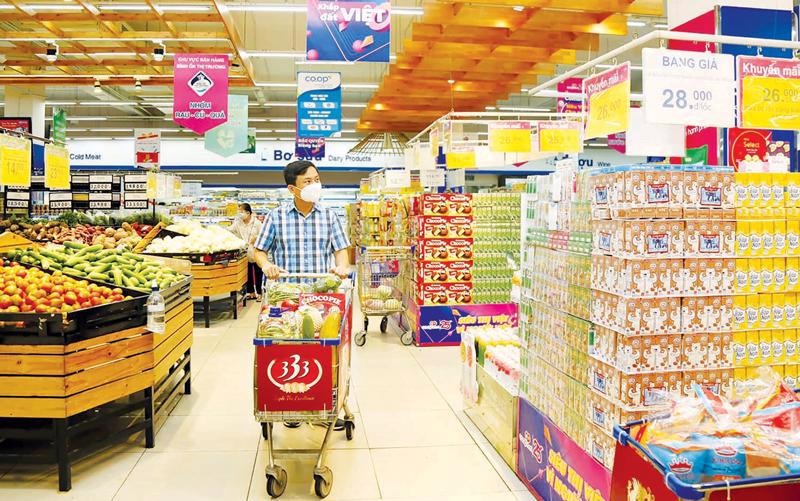Localities and businesses nationwide are working to guarantee there are sufficient supplies of and stable prices for a wide range of essential goods commonly consumed during the upcoming Lunar New Year (Tet) holiday in January.
Product reserves for Tet are estimated to increase 10-12 per cent year-on-year, focusing on essential commodities such as rice, processed food, oil, and sugar, according to the Ministry of Industry and Trade (MoIT).
The ministry told a recent meeting in Hanoi discussing preparations for the Tet holiday and measures to stabilize prices that the local market recovered significantly in November after two years of grappling with Covid-19 and consumption demand has risen since.
Consumer prices have been rising slightly during the closing quarter of the year as demand rises ahead of Tet.
Demand is estimated to increase 8-10 per cent compared to Tet last year due to Vietnam’s economic recovery.
The supply of essential goods like food and foodstuffs has remained abundant, the MoIT said, emphasizing that production is catering to the domestic and foreign markets.
In certain localities like Ho Chi Minh City and Hanoi, southern Binh Duong and Binh Phuoc provinces, and the central highlands’ Lam Dong province, local departments of industry and trade have instructed relevant agencies and businesses to actively take measures to prepare sufficient goods for Tet.
Acting Director of the Hanoi Department of Industry and Trade Tran Thi Phuong Lan said the city has issued ten plans and documents on preparing the supply of goods and measures to stabilize the market for the holiday. The total value of goods prepared is estimated at VND39.5 trillion ($1.6 billion), a 15 per cent increase compared to last year.
Businesses in Hanoi have introduced plans to prepare sufficient essential goods for Tet, increasing supply by 15-30 per cent year-on-year.
The Ho Chi Minh City People’s Committee, meanwhile, has issued a plan to stabilize the market in the year-end and Tet period. Local businesses have spent VND22 trillion ($880 million) as part of the plan.









 Google translate
Google translate